MIHO's Healthy Smile Life
from webWD
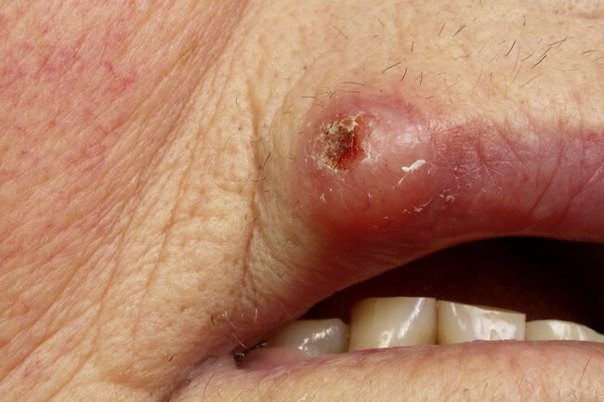
口腔がんの手引き
Guide to Oral Cancer
https://www.webmd.com/cancer/ss/slideshow-oral-cancer
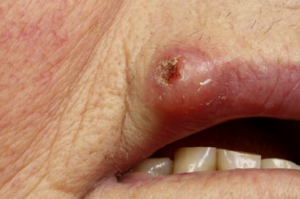
What Is It?
Oral cancer affects the lips, gums, tongue, roof of the mouth, insides of the cheeks, or the soft floor of the mouth under the tongue. It’s called “oropharyngeal” when it affects your tonsils, upper throat, or soft palate, where the roof of the mouth meets your throat.
url
口腔がんとは?
口腔がんは、唇、歯茎、舌、口蓋、頬の内側、または舌下の柔らかい床に影響を与えます。扁桃腺、喉上部、または軟口蓋という口蓋が喉と合流する場所に影響を与える場合、これは「中咽頭」と呼ばれます。
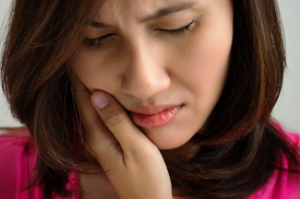
What Are the Symptoms?
You may not notice any. But the most common one is a
url
sore inside your cheek or lip that won’t heal. You might
feel a lump or see a patch of red or white in your mouth.
Other signs are mouth numbness, pain, bleeding, or
weakness, as well as voice changes, ear ringing, and a
sore throat that won’t go away. Teeth or dentures might get loose for no clear reason. But these also could be signs of less serious problems. Tell your doctor if you notice any symptoms so they can help you figure out the cause.
どんな症状か?
症状に気づかないかもしれません。しかし、最も一般的な症状は、なかなか治らない頬や唇の内側の痛みです。しこりを感じたり、口の中に赤や白の斑点が出来ることがあります。
他の兆候は、口のしびれ、痛み、出血などだけでなく、声の変化、耳鳴り、そしてなかなか
消えない喉の痛みです、歯や入れ歯は、明確な理由がなく緩む場合があります。しかし、これらはそれほど深刻ではない問題の兆候である可能性もあります。何らかの症状に気づいた場合は、原因を突き止めるためにかかりつけの医師に伝えてください。
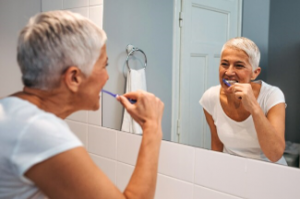
Who Gets It?
Women and people older than 45 are more likely to get oral cancer, though it can happen at any age. Those with fair skin are more likely to get cancer of the lip. And some studies show that people with weaker immune systems, which happens with age or a long-term illness like HIV, get oral cancers more often.
url
どのような人に発症しやすいか?
女性や45歳以上の人は、口腔がんになる可能性が高くなりますが、どの年齢でも発生する可能性があります。色白の人は唇のガンにかかる可能性が高くなります。また、いくつかの研究では、年齢やHIVのような長期的な病気が原因の弱った免疫システムの人は、口腔がんにかかる頻度が高いことが示されています。
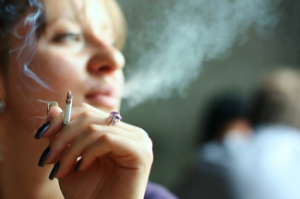
Tobacco Use
Almost 90% of those who get cancer of the head or neck, including oral cancer, use tobacco or spend time around secondhand smoke. The form doesn’t matter — it could be cigarettes, cigars, snuff, or chewing tobacco. Pipes may be special offenders, particularly in the area where the lips meet the pipe stem. People who use marijuana may also be more likely to get the disease.
url
たばこ
口腔がんを含む頭頸部がんにかかる人のほぼ90%が、タバコを吸っているか、または間接喫煙をしてしまう環境で過ごしています。たばこの吸い方は重要ではありません。タバコ、葉巻、嗅ぎタバコ、噛みタバコなどが考えられます。パイプは、特に唇がパイプステムに接するため、特に罹患の可能性があります。マリファナを使用する人はまた、病気にかかる可能性が高くなります。
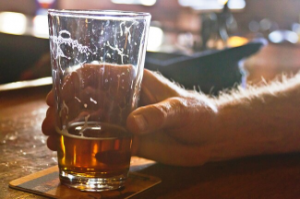
Alcohol and Oral Cancer
Booze can raise your odds for the disease, specifically if you drink a lot (more than a drink or two in a day) on a regular basis. And if you use tobacco as well, your odds go up more, especially after age 50.
url
アルコールと口腔がん
お酒を定期的にたくさん(一日に一杯か二杯以上)を飲むと、病気になる確率を上げる可能性があります。また、たばこ吸うと、特に50歳以降はその確率がさらに高くなります。
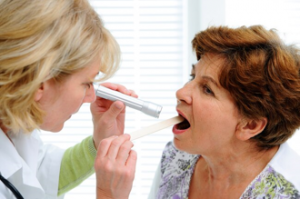
Getting a Diagnosis
Doctors and dentists usually find oral cancer during routine checkups. If they notice signs of a problem, they’ll look carefully inside your mouth and throat, sometimes with a special lighted tool, and may feel your jaw and neck for lumps or patches. If they find something, a test called a biopsy will usually help them confirm or rule out cancer.
url
診断を受ける
医師や歯科医は通常、定期検診中に口腔がんを発見します。問題の兆候に気づいたら、口や喉の内部を注意深く観察します。特殊な照明付き道具などを使用することもあり、顎や首にしこりや斑点がないか感じることがあります。彼らが何かを見つけた場合、生検と呼ばれる検査は、通常、がんを確認または除外するのに役立ちます。
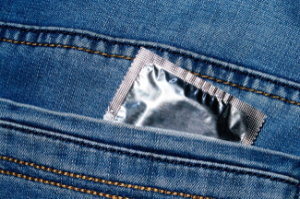
A Link to HPV?
You typically get human papillomavirus (HPV) through sex,
url
including oral sex. There are many types of the virus,
some closely linked to cancer. There is some evidence
that the infection leads to cancer at the base of the tongue
or in the tonsils. A vaccine for HPV may protect against the
types that cause oral cancer, but scientists don’t know for sure. To lower the chances you’ll get the virus, use condoms or dental dams each time you have sex.
HPVとの関連?
通常、 オーラルセックスを含むセックスを通じてヒトパピローマウイルス(HPV)が体内に入ってきます。ウイルスには多くの種類があり、一部は癌に密接に関連しています。感染が舌根または扁桃の癌につながるといういくつかの研究結果があります。 HPVのワクチンは口腔癌を引き起こす種類のウィルスから保護しますが、確証がありません。ウイルスに感染する可能性を低くするには、セックスするたびにコンドームまたはデンタルダムを使用するようにしましょう。
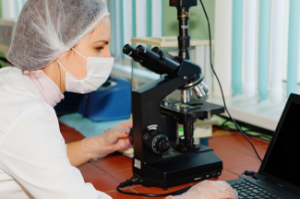
Biopsy
It’s often the only sure way to know whether a lump is cancer. Your doctor removes a small piece of tissue to send to a lab for testing. He might use a needle, a scraping tool, or do minor surgery to cut out a piece of tissue. Your dentist might use a simpler method at first: a small brush to gather cells from a suspicious spot. In this case, if the lab finds cancer, you’ll need a more traditional biopsy to confirm it.
url
生検
しこりががんであるかどうかを知る唯一の確実な方法です。医師が組織の小片を取り出して、検査のために研究室に送ります。針のようなかき取る道具が使われ、組織の一部を切り取るために簡単な手術をするかもしれません。歯科医は、最初はより簡単な方法を採用するかもしれません。小さなブラシで疑わしい箇所から細胞を集めます。この場合、研究室で癌が見つかった場合、それを確認するために、より伝統的な生検が必要になります。
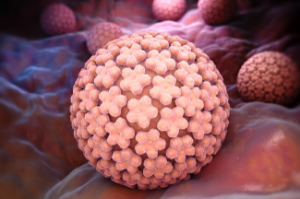
HPV Test
Your doctor could also test the biopsy tissue for HPV. The result helps your doctor figure out the extent of your cancer and the best treatment options. People with cancers linked to this virus tend to do better than those with other types of cancer.
url
HPVテスト
医師はHPVの生検組織を検査することもできます。結果は、医師ががんの範囲と最良の治療方法を見つけるのに役立ちます。このウイルスに関連するがんの人は、他の種類のがんの人よりも効果が高い傾向があります。
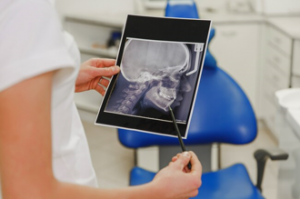
Imaging Tests
Doctors can use different tests to look at the organs and structures in and around your mouth. They include X-rays, MRI, CT scans, ultrasound, and PET scans. By themselves, they can’t diagnose your cancer, but your doctor might use one or more of them to look for a tumor, see how well treatment is working, or check if cancer has come back.
url
画像検査
医師はさまざまな検査を行って、口の中や周囲の臓器や構造を調べることができます。 X線、MRI、CTスキャン、超音波、PETスキャンが含まれます。単独ではがんを診断することはできませんが、医師は1つ以上の方法を使って腫瘍を探したり、治療の効果を調べたり、がんが再発したかどうかを確認したりします。
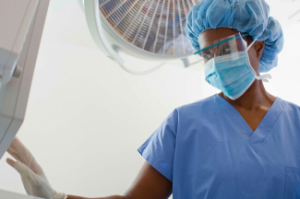
Treatments: Surgery
It’s often the first treatment doctors try, especially when your disease is in the early stages. Your doctor will try to remove the tumor as well as an area, or margin, of tissue around it to be sure that all the cancer cells are gone. In some cases, this could mean cutting out part of the tongue, jawbone, or roof of the mouth. You may need more surgery later on to make those areas look and work well again.
url
治療:手術
多くの場合、これは医師が最初に試みる治療であり、特に疾患が初期段階にある場合はそうです。医師は、腫瘍とその周囲の組織または周辺を切除して、すべてのがん細胞が確実に無くなるようにします。場合によっては、これは舌、顎骨、または上あごの一部を切り取る場合があることを意味します。これらの領域を再び美しく機能させるためには、後でさらに手術が必要になる場合があります。
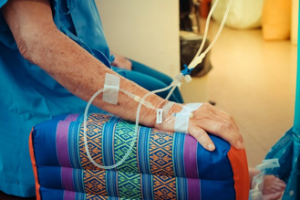
Treatments: Radiation and Chemo
Radiation uses high-energy particles to kill cancer cells or slow their growth. In chemotherapy, drugs in the form of pills or injections travel through your bloodstream to target cancer cells. You might get one or both treatments, depending on the type of cancer and how long you’ve had it. Even if you have surgery, you may need one or both of these treatments to help ensure cancer doesn’t return.
url
治療:放射線と化学療法
放射線は高エネルギー粒子を使用して、がん細胞を殺したり、その増殖を遅らせたりします。化学療法では、錠剤や注射剤の薬が血流を通ってがん細胞を標的にします。がんの種類と治療期間によって、片方または両方の治療を受ける場合があります。手術を受けていても、がんが再発しないようにするには、これらの治療法のいずれかまたは両方が必要になる場合があります。
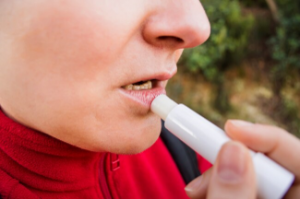
Can You Prevent It?
A few basic health habits can lower your chances of getting oral cancer.
url
•Stay out of the sun. Too much is linked to lip cancer. Cover up with hats and sunscreen of SPF 15 or higher.
•Don’t use tobacco, and limit the alcohol you drink.
•Brush, floss, and go to the dentist regularly. It makes you less likely to get cancer, and it also helps you catch it early when it’s easier to treat.
•Eat a healthy diet with plenty of vegetables and fruits. A lack of vitamin A — found in oily fish, milk, eggs, spinach, carrots, and beef liver — could lead to certain oral cancers.
予防できますか?
いくつかの基本的な健康習慣は、口腔がんになる可能性を低下させることができます。
- 日光を避けてください。日光は唇癌に関連しています。 SPF 15以上の日焼け止めと帽子で肌を覆います。
- タバコを吸わないようにしましょう。また、アルコールを控えてください。
- 歯磨き、フロス、そして定期的に歯科医に行きましょう。がんにかかる可能性が低くなり、早期にがんを発見できるので治療しやすいのです。
- 野菜や果物をたっぷり使って健康的な食事をとりましょう。油性の魚、牛乳、卵、ほうれん草、ニンジン、および牛肉の肝臓に含まれるビタミンAの欠如は、特定の口腔がんにつながる可能性があります。

